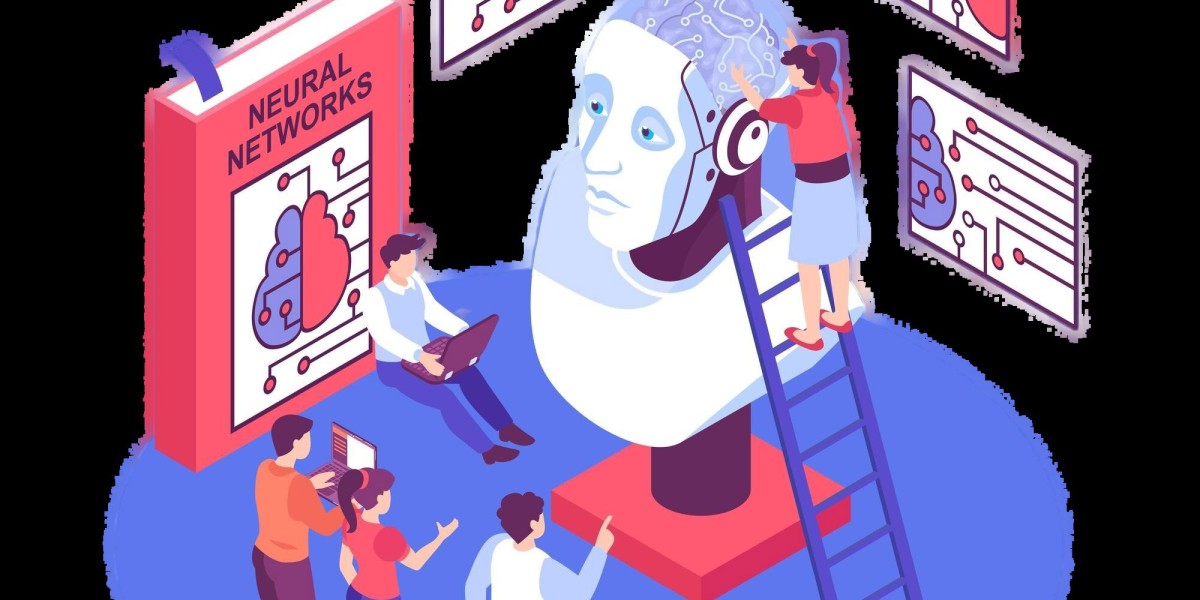Introduction
Generative AI has become a transformative force across various industries, with manufacturing being one of its most promising applications. Generative AI in manufacturing brings significant improvements in production efficiency, product design, and overall operational cost-effectiveness. When paired with specialized generative AI integration services, manufacturers can implement these advanced technologies seamlessly into existing workflows, creating a fully optimized production environment. In this article, we’ll explore how generative AI is applied in manufacturing, the benefits it offers, and how integration services can help organizations leverage this technology to its fullest potential.
Table of Contents
- What is Generative AI in Manufacturing?
- Key Applications of Generative AI in Manufacturing
- Benefits of Using Generative AI in Manufacturing
- Role of Generative AI Integration Services
- Challenges of Integrating Generative AI in Manufacturing
- Future Trends: The Evolving Role of Generative AI in Manufacturing
- Conclusion
1. What is Generative AI in Manufacturing?
Generative AI uses machine learning models to produce content, designs, or solutions based on input data and desired outcomes. In manufacturing, this means AI can generate optimized designs, automate repetitive processes, predict equipment maintenance, and enhance product quality. Unlike traditional AI, which follows pre-set rules, generative AI creates entirely new outputs by learning from data patterns and adjusting based on real-world feedback.
2. Key Applications of Generative AI in Manufacturing
Generative AI is versatile and can be used in various facets of manufacturing, including:
A. Design Optimization
Generative AI algorithms can create multiple design variations based on set parameters like weight, strength, and material limitations. Engineers can use these designs to determine the most efficient and feasible options for production. For instance, automotive and aerospace industries use AI-generated designs to produce lighter, stronger, and more efficient components.
B. Predictive Maintenance
Using data from sensors on machinery, generative AI models can predict equipment failures before they occur. This proactive approach prevents costly unplanned downtimes and extends the life of critical machinery.
C. Quality Control and Defect Detection
AI-powered systems can analyze data from production lines in real-time to detect defects early in the process. This application enhances product quality, minimizes waste, and ensures consistent standards across all production units.
D. Supply Chain Optimization
Generative AI helps manufacturers optimize their supply chains by predicting demand fluctuations, identifying potential bottlenecks, and recommending actions to ensure a smooth supply flow.
3. Benefits of Using Generative AI in Manufacturing
Integrating generative AI into manufacturing offers numerous advantages that improve efficiency, reduce costs, and enable greater innovation:
Increased Efficiency and Speed: Generative AI can perform tasks like product design, defect detection, and predictive maintenance more rapidly than human capabilities, significantly speeding up production cycles.
Enhanced Product Quality: AI-driven quality control systems detect flaws early, ensuring that only high-quality products reach the market.
Resource Optimization: By optimizing production processes, generative AI minimizes material waste and reduces resource consumption, contributing to cost savings and environmental sustainability.
Customization: Generative AI enables manufacturers to offer more personalized products by rapidly generating designs that cater to unique customer specifications.
Predictive Insights: Generative AI can identify patterns that may go unnoticed by human operators, giving manufacturers predictive insights that help them make informed decisions.
4. Role of Generative AI Integration Services
Generative AI integration services play a crucial role in helping manufacturers implement and manage AI-driven solutions. These services ensure that AI technologies are properly aligned with a company’s specific needs and goals. Here’s how integration services benefit manufacturing businesses:
A. Strategy Development
Integration services help manufacturers identify the best ways to incorporate generative AI into their operations. By assessing the current manufacturing processes, they can recommend the most impactful AI applications and create a step-by-step roadmap for AI integration.
B. Custom AI Model Development
AI integration service providers create custom models tailored to a manufacturer’s specific requirements, such as defect detection, predictive maintenance, and design generation. Custom models are crucial because generic AI models may not fully address unique operational needs.
C. Data Collection and Processing
Generative AI systems require vast amounts of data for training. Integration services manage the collection, cleaning, and processing of data to ensure the AI models are accurate and reliable.
D. Employee Training
For generative AI to succeed, employees need to understand how to use AI tools effectively. Integration services offer training sessions to help staff adapt to AI-powered workflows and understand the insights these tools generate.
E. Ongoing Support and Monitoring
Integration doesn’t end once the AI systems are operational. AI integration services provide ongoing support to monitor model performance, make necessary adjustments, and scale solutions as manufacturing demands evolve.
5. Challenges of Integrating Generative AI in Manufacturing
Despite the advantages, implementing generative AI in manufacturing comes with several challenges:
A. Data Availability and Quality
Generative AI systems require large volumes of high-quality data. If a manufacturer doesn’t have enough historical data or if the data is unreliable, the effectiveness of the AI model may be compromised.
B. High Implementation Costs
The upfront costs of integrating AI solutions can be significant, especially for small to medium-sized manufacturers. However, the long-term benefits and efficiencies generally outweigh these initial costs.
C. Skill Gaps
Many manufacturing firms lack the in-house expertise to handle advanced AI technologies. This is where generative AI consulting and integration services are particularly valuable, as they fill this knowledge gap.
D. Change Management
Implementing AI technologies often means significant changes in workflows and processes. Employees may resist these changes, especially if they perceive AI as a threat to job security. Effective change management and communication can alleviate these concerns.
6. Future Trends: The Evolving Role of Generative AI in Manufacturing
As generative AI technology continues to evolve, new trends are emerging in the manufacturing industry:
A. Autonomous Manufacturing
With advancements in AI and robotics, manufacturers are moving towards autonomous production processes where machines can operate with minimal human intervention. Generative AI will play a key role in decision-making and operational control.
B. Increased Focus on Sustainability
Generative AI can aid in developing eco-friendly products and optimizing production to reduce waste. As manufacturers seek to adopt greener practices, AI-driven solutions will become integral to sustainable manufacturing efforts.
C. Real-Time AI-Driven Decision-Making
In the future, generative AI systems will enable manufacturers to make real-time decisions based on dynamic market demands, production statuses, and supply chain changes. This adaptability will make manufacturing more resilient to disruptions.
D. Expansion of Digital Twins
The concept of digital twins, or virtual replicas of physical assets, will expand with generative AI. By creating AI-driven models of machinery, manufacturers can simulate various scenarios, optimize performance, and prevent potential issues.
7. Conclusion
Generative AI is poised to transform the manufacturing sector, bringing unprecedented levels of efficiency, customization, and predictive capabilities to production processes. With the support of generative AI integration services, manufacturers can implement tailored solutions that streamline operations, reduce costs, and improve product quality. From design optimization to predictive maintenance, the applications of generative AI in manufacturing are vast and evolving.
Naijamatta is a social networking site,
download Naijamatta from Google play store or visit www.naijamatta.com to register. You can post, comment, do voice and video call, join and open group, go live etc. Join Naijamatta family, the Green app.
Click To Download


